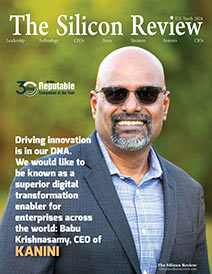>>
Industry>>
Telecom>>
AT&T-Time Warner Merger: One o...AT&T-Time Warner Merger: One of the Most Anticipated Antitrust Battles in Years
The Silicon Review
20 March, 2018
AT&T and Time Warner plan to merge in an $85.4 billion deal that would unite one of the largest distributors of content with one of the biggest producers of content, a roster that includes hits like HBO’s ‘Game of Thrones’, the Harry Potter films and major cable franchises like CNN.
The trial to determine if the U.S. Department of Justice can stop AT&T’s purchase of the media company, according to Reuters, will begin on March 19 with no decision expected before the companies’ April 22 deadline to complete the deal, a federal judge said on Thursday.
How the judge rules in the case has the potential to shape the fast-changing business of video, as consumers increasingly turn to streaming services instead of traditional cable TV. AT&T, a nationwide satellite TV and wireless provider, argues that pairing up with a major content company is necessary to compete against the reach and resources of tech giants like Netflix and Amazon. But the Justice Department did not agree.
The decision will frame the competition among Silicon Valley, Hollywood and Madison Avenue, while also establishing what kinds of corporate mergers – in the media industry and beyond – will be permitted in the years to come.
“This court case is so important it is hard to know where to start,” said Amy Yong, a research analyst at the investment firm Macquarie. “This case is at the heart of what we do in our everyday lives.” The analyst was quoted on The New York Times.
Why is the Justice Department suing AT&T?
The government, according to Recode, says the merger will be bad for consumers. A combined AT&T and Time Warner would have much more heft and could force higher prices on TV distributors, leading to higher cable and satellite TV bills.
“Consumers will end up paying hundreds of millions of dollars more than they do now to watch their favorite programs on TV,” the Justice Department said in court filings.
Fait Accompli
For the better part of a year and a half, the acquisition was regarded, more or less, as a fait accompli. That changed completely in November last year when the Justice Department moved to block the deal, NYT reported.
Now the talk in media circles revolves around what will happen if the acquisition is stopped and Time Warner – the owner of HBO, Warner Bros., CNN, TBS and TNT – is made an orphan. And what will it mean for the old-guard entertainment companies in the streaming age?
“I think it’s important for the ecosystem, the media ecosystem, that this deal goes through,” said David Zaslav, the chief executive of Discovery. “For the first time in the history of this business, you have these massive global companies — Facebook, Netflix, Amazon, Google – of a scale we have never seen. They are like massive transformers. Mr Zaslav was quoted on the newspaper.
The media industry has undergone significant change since the blockbuster deal was announced in October 2016.
What are the stakes for AT&T and Time Warner?
Time Warner could lose out on $85 billion – which would go to its shareholders, including executives. Anyone who bought stock prior to news of the deal stands to gain at least a 36 percent profit based on AT&T’s offer of $107.50 per share, Recode reported.
But after the government filed its suit, shares dropped below $100, a sign of low-to-medium confidence that the merger will be approved.
If AT&T loses, it would also have to pay Time Warner $500 million in what’s known as a reverse breakup fee. That’s small relative to the typical payout, usually between 3 percent to 9 percent of the deal size. In this case, it’s less than 0.6 percent. Time Warner and AT&T, it seems, were confident the deal would pass regulatory muster, which might explain the low fee. The Trump Administration, of course, ignores all past precedent.
It would also be a blow to Time Warner CEO Jeff Bewkes, who sees this deal as his grand exit.









